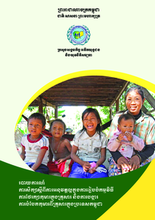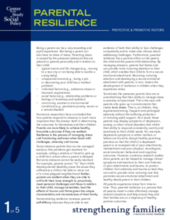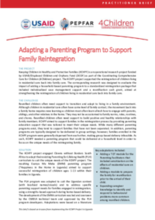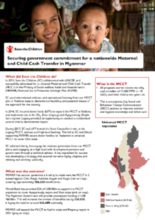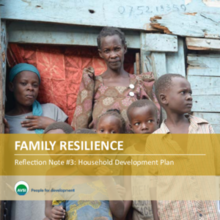Displaying 311 - 320 of 947
Through systematic and strategic searches, the authors explored the existing trends of Family Group Conference (FGC) research in indigenous contexts.
This report (in Khmer) provides in-depth analysis of programs of 7 different NGOs in Cambodia working on the prevention of family separation and family preservation in order to respond to risks related to physical and mental well-being and domestic violence.
This packet includes the research brief about each protective factor as well as an “action sheet” for service providers about their role in supporting families to build each protective factor.
This module is the second part of the Parenting without Violence Bronze Course. It focuses on the course's second learning outcome by sharing more about HOW Parenting without Violence works.
This Practitioner Brief presents key learning and recommendations from the Keeping Children in Healthy and Protective Families (KCHPF) project, an operational research project which supported the reintegration of children living in residential care back into family care in Uganda.
This episode of the Child Welfare Information Gateway podcast is part of a series focusing on Community-Based Child Abuse Prevention (CBCAP) grantees.
This brief guide from the Harvard Center on the Developing Child outlines 5 steps for primary caregivers to practice serve and return with their child.
This module is the third part of the Parenting without Violence Bronze Course. The module identifies concrete ways to integrate Parenting without Violence into your work.
This document summarises Save the Children's involvement in supporting the Government of Myanmar and other partners to test and roll out a "First 1000 days" Maternal and Child Grant Programme that has proven to prevent chronic malnutrition.
This Reflection Note from the Family Resilience (FARE) project asked how, in practice, Household Development Plans were used, and what was their value in improving the relationship environment and capacities of families to reintegrate previously separated children and youth back at home and to prevent separation.

